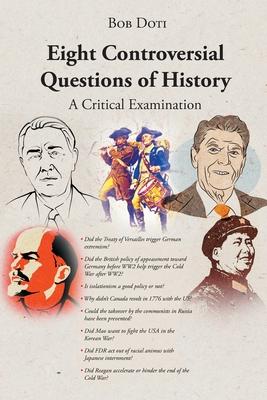Is history written by the victors? It should not be. Nor should it be based on opinions, but what do writers in the field tell us about the questions we are posing? We will not engage in conspiracy theory but facts to discuss these questions. We will look at everyone, from Pat Buchanan to the writings of Joseph Stalin, to answer the eight controversial questions of history.
Did the Treaty of Versailles trigger German extremism?
Did the British policy of appeasement toward Germany before WW2 help trigger the Cold War after WW2?
Is isolationism a good policy or not?
Why didn't Canada revolt in 1776 with the US?
Could the takeover by the communists in Russia have been prevented?
Did Mao want to fight the USA in the Korean War?
Did FDR act out of racial animus with Japanese internment?
Did Reagan accelerate or hinder the end of the Cold War?
Indeed, in writing history, it constantly undergoes revision as new primary documents or new perspectives from secondary sources emerge, as the historians constantly write to this day. This new perspective, as the culture changes, informs us better. These questions concern the current world we live in for the rest of our lives. So this is not the final word on these questions
Eight essays have four themes: war and peace, nationalism and imperialism, democracy and dictatorship, and impactful presidents and controversy.
